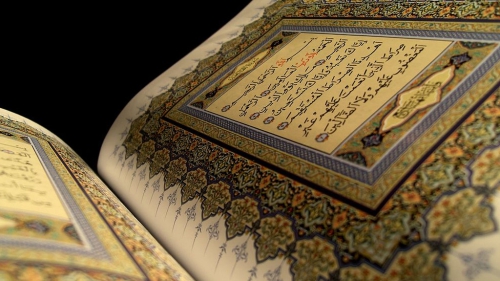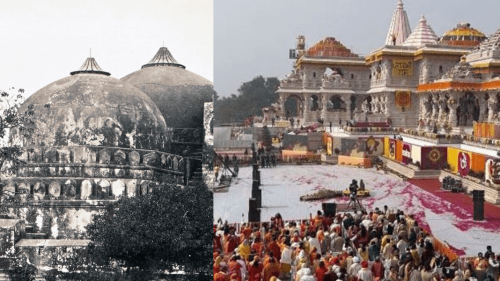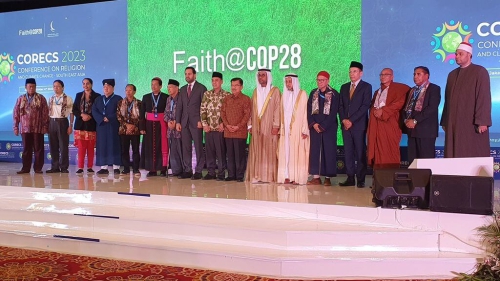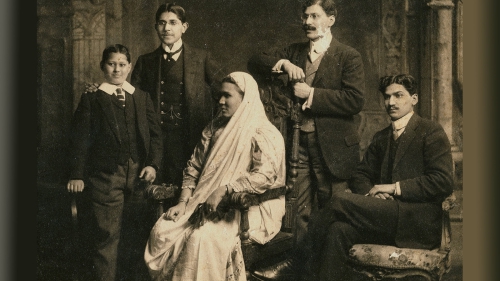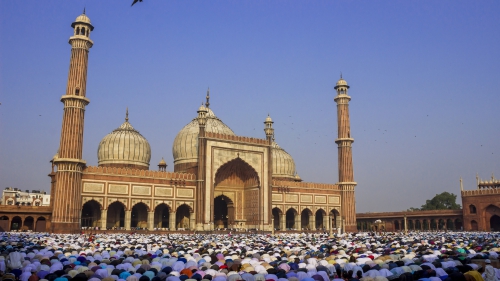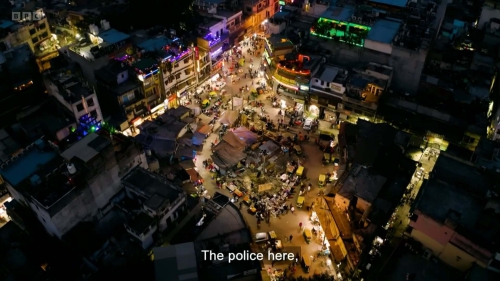Delhi Diary
Delhi: The Scourge of Pollution
Taking a strong view on the issue of rising pollution, India's Supreme Court issued an ultimatum on September 13 that requires industries to either set up effluent treatment plants (ETPs) or shutter their operations. The need for such decisive action points to the alarming problem of pollution facing Delhi.
Contamination of both air and water has posed a serious threat to public health. So far as air pollution is concerned, it is in fact a slow poison and shares a major part of the problem. Lung and heart disease, cancer and asthma are linked to this menace. The three Inter-State Bus Terminals (ISBTs) -- frequented round the clock by hundreds of buses and other vehicles -- are places full of smoke, which waiting passengers are forced to inhale. The effects of the smoke are clearly visible on the tormented faces of passengers. Thousands of buses run on the Delhi roads daily. Of them, there are only five powered by Compressed Natural Gas (CNG).
The industrial units situated along the Delhi-Ghaziabad railway track are equally threatening, as they emit acidic, corrosive fumes that eat away the railway's signal equipment, electrified overhead wires and even the track. So corrosive are the emissions, that even electrified overhead wires that carry 25,000 volts, have begun to snap. Were one of these lines to fall on a passenger train or diesel tanker, it would take a heavy toll of lives.
The observations of Dr. Shankar Prasad, the community health adviser for the California Air Resources Board (CARB) show comparatively just how bad Delhi's pollution is: "If the small particulate pollution level in California ever reached the same levels as in Delhi, the Californian environment authorities would have declared an emergency, shutting off all emission sources in the city and taking vehicles off the road."
A steadfast environmentalist, Dr. Prasad also observes that Delhi, despite reeling under severe pollution, has no agenda to ensure cuts in its levels. In contrast, the state of California, despite much lesser levels of pollution, has "advanced its world leadership in developing most stringent emission controls to protect public health," says Prasad.
In addition, the Washington-based Worldwatch Institute has likened the pollution levels in Delhi to the infamous 1952 London smog that claimed 400 lives. London's coal smoke produced a high concentration of sulfuric acid in fog droplets. The acidic droplets adversely affected people's breathing, thus resulting in symptoms such as chest constriction, headache, nausea, vomiting and irritation in eyes, ears, nose and throat.
The London and Delhi experiences emphasize the need to replace coal as a fuel source on account of its high polluting potential. Coal, being the most carbon-intensive fossil fuel, leads to 43 percent of annual global carbon emissions. Burning the world's entire coal reserve would emit three trillion tons of carbon, five times more than the safe limit for averting serious climatic disruptions.
To bring the Delhi situation under control, people are going to need to change their energy consumption patterns and pollution control standards will need to be made more stringent. More CNG powered buses, cars and auto-rickshaws will need to come into use. And in general a government commitment to environmental improvement will need to take hold.
------------------------------------------
Fear not the BJP
The Bharatiya Janata Party (BJP), a hardcore Hindu political party, seems to have no qualms in misdirecting the public agenda. Currently it is drawing attention only to issues irrelevant to the common people. Issues that are polarizing but non-essential -- Kargil, telecom policy and the foreign origin of Congress president Sonia Gandhi, to name a few.
Consider the fact that BJP leaders have proposed a constitutional amendment barring foreign-born candidates from becoming the head of the state or the government. The manifesto of the National Democratic Alliance under the chairmanship of Prime Minister Vajpayee contains such a proposal. One recalls that Home Minister Lal Krishna Advani, an accused in the Babri Masjid demolition case, had opposed such a proposal when the Goswami Committee was preparing its recommendation for poll reforms in 1989 and 1990.
If only an Indian-born candidate is allowed to head the government or the state, then Prime Minister of Pakistan Nawaz Sharif will also qualify for candidacy. (Nawaz Sharif was born at Batala, a town in Indian Punjab). Interestingly, BJP leaders such as L.K. Advani and Madan Lal would not qualify as these two leaders were born in Sindh state of Pakistan.
On the issue of inflation the BJP-led government has chosen to pretend it does not exist while the prices of vegetables in Delhi continue to skyrocket. Onions, which were available at Delhi markets at Rs. 8 per kg. a week ago are now sold at the double rate. Prices of peas, lady-fingers, tomatoes, wheat, rice and pulses have also soared beyond the reach of the poor people. Erratic transport systems have added fuel to this fire as most of the trucks that transport vegetables are being used by BJP party workers for poll activities.
In the recent times, the BJP has also blown hot and cold on three contentious issues -- construction of the Rama Temple on the site of the Babri Masjid, enactment of Uniform Civil Code (UFC) and deletion of Article 370 from the Constitution. Its general secretary K. Govindacharya has openly said that these three issues are alive; but the NDA manifesto has remained tightlipped on them. And now there is a five-year moratorium on these issues.
As for where they currently stand, the first issue of the Rama Temple is pending in a court of law. According to an Indian Act, places of worship cannot be disturbed. They are to remain as they were on the occasion of the Independence of India. In addition, the property title suit relating to the disputed site will certainly go in favor of Muslims. Hence, Hindu opponents always harp on the demand for Muslims to hand the disputed site over to the Hindus. The second issue of Uniform Civil Code is practically at an impasse because Hindus themselves will be up in arms against it. For example UFC would prevent a Hindu in the south from marrying his cousin. So far as the third issue of Article 370 is concerned, the BJP cannot afford to anger the Kashmiri Pundits, its voter bank. Hence, Indian Muslims need not worry.








